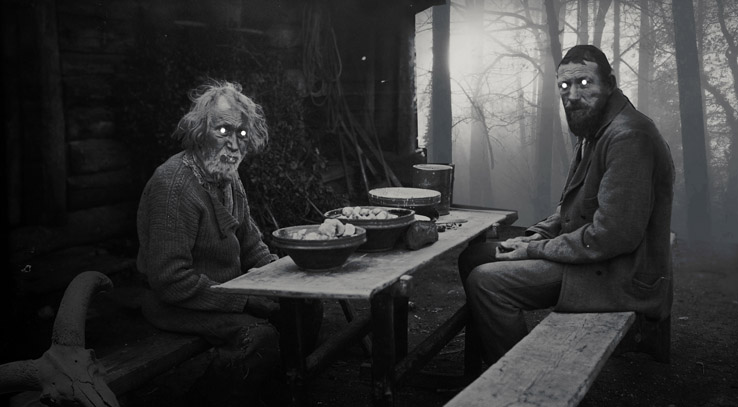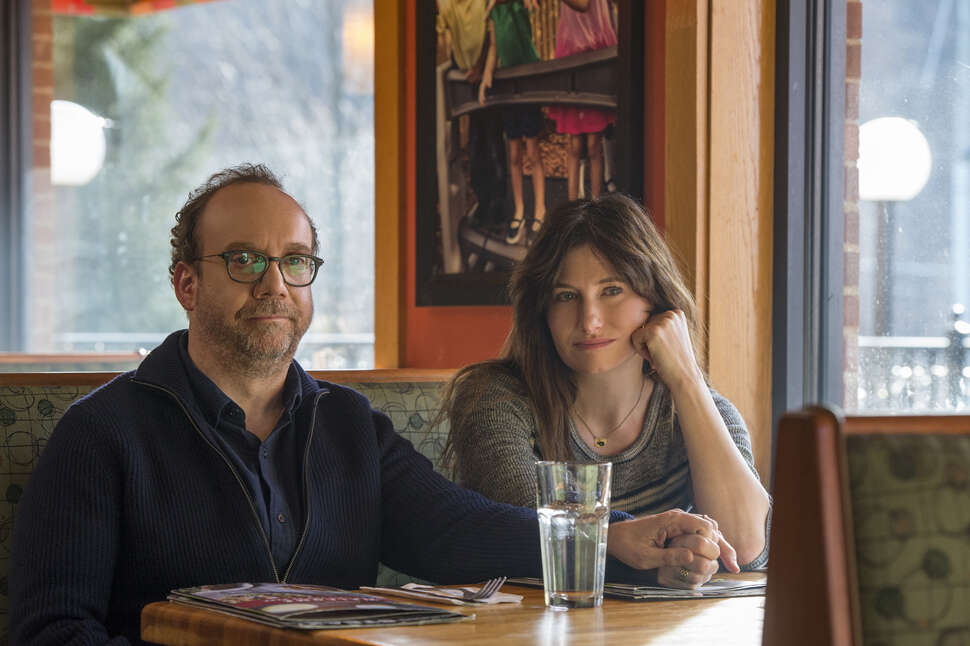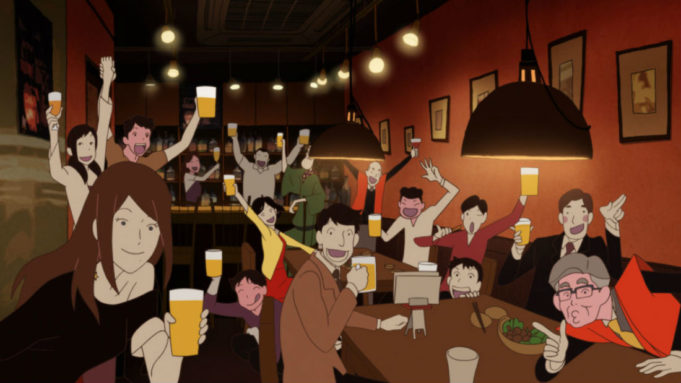Time once again for one of my February traditions: This column, in which I tell you about some movies that did not play in our area’s theaters this past year, which meant that I didn’t have a chance to even write up a capsule-length review for them on our Film Shorts page. Some of these I’ve already mentioned in this paper’s awards coverage, others I haven’t had the chance to discuss until now. You may have noticed that I haven’t written about Roma yet. Alfonso Cuarón’s masterwork is not in this article because I’m holding out a slim hope that it will reach us in the wake of the Oscars. Stay tuned for that, and read on:
Burning

I may not understand why this Korean film was left out of the Oscar nominations, but I do understand why it never saw the inside of our theaters. Lee Chang-dong is a director whose work is slow-paced, intellectual, spiritual, and sometimes obdurate. Next to him, it’s much easier to digest the movies of Bong Joon-ho and Park Chan-wook. Yet you don’t want to miss this 158-minute epic adapted from a Haruki Murakami short story about an aimless and somewhat dim young man (Yoo Ah-in, an actor of tremendous range) whose inchoate rage and frustration finds its target in a wealthy and condescending Americanized Korean (Steven Yeun) who’s his romantic rival. Some of Lee’s films such as Oasis and Poetry can become too caught up in their lyricism, but here the violence and creepiness prove clarifying to the drama. There’s also a gorgeous sequence with the woman whom the two men are fighting over (Jun Jong-seo) dancing naked in front of a sunrise to Miles Davis’ “Générique.” Fall into Lee’s groove, and you’ll reap a rewarding murder mystery with some deeply troubling psychological undertones.
Gemini

I like Aaron Katz’ work so much. I have ever since 2011, when I saw his breakout film Cold Weather, a low-budget thriller set in Portland that generated gripping suspense with a minimum of violence. He does something similar in this charmingly shaggy thriller set in Hollywood, as a movie star’s personal assistant (Lola Kirke) becomes the prime suspect in the murder of her closeted boss (Zoë Kravitz) and investigates the crime on her own to clear her name. Katz has a real feel for the L.A. noir atmosphere of older films, as well as for the ways the heroine digs through social media and other people’s phones for clues. Kirke is quite tensile and resilient — as well as funny in her early interactions with a boss who’s her best friend — and has an intriguing gallery of suspects to interrogate and/or flee from. Katz should be directing thrillers for Hollywood; he would do something different.
Happy as Lazzaro
/cdn.vox-cdn.com/uploads/chorus_image/image/62602652/lazzaro.0.jpg)
I find myself less upset than others about the exclusion of female directors from this year’s Oscar nominations, but if there’s one woman-directed film I would put forward as deserving of a nod, it’s this Italian film that’s on Netflix right now. The first half of this deliberate movie is straight-up neorealism, telling the story of a group of unpaid sharecroppers on a tobacco farm in a past decade. Then, the film abruptly turns into a fairy tale, as a worker (Adriano Tardiolo) awakes after a bad fall and finds that it’s the present day, and all his fellow workers are now miserable hustlers in the city. They’re also much older, while he’s mysteriously unaged. Alice Rohrwacher’s film trenchantly satirizes global capitalism, which has left these uneducated folks worse off than before. It also has remarkable performances by Tardiolo as a wide-eyed naif and the director’s sister Alba Rohrwacher as his love interest. Oh, it won an award for its screenplay at Cannes.
Leave No Trace

Debra Granik’s careful, unflashy artistry isn’t the type that grabs attention, but here she sensitively tells the story of a PTSD-suffering war veteran (Ben Foster) and his teenage daughter (Thomasin Harcourt McKenzie) who are squatting in Forest Park outside of Portland. It’s quite moving, seeing this man who has been left unable to cope with the demands of civilization yet, against steep odds, has managed to be a good father to his child. Granik simply observes him as he goes about the work of surviving, selling bootleg psychiatric medication to homeless people who need it more and teaching his daughter about chess and literature in the middle of the wet Pacific Northwest forests. Foster is excellent as always, and McKenzie is marvelously alert. I watched this entire film without realizing that this newcomer is from New Zealand.
The Night Comes for Us

I don’t understand the people saying Mission: Impossible — Fallout was one of the year’s best movies. It’s a well-executed action film, but if I want to watch a thriller with no stakes, I’ll queue up this movie on Netflix. It is very Indonesian, which means it’s insanely violent. Most of the people from The Raid movies are in it, with Joe Taslim as a crooked cop trying to go straight and Iko Uwais as a mob enforcer trying to kill him. Who cares about character motivations with action like this? Julie Estelle plays an operative who loses her pinky in mid-fight, pockets the severed digit, and keeps going. A near-unkillable berserk character named White Boy Bobby (who isn’t white) kicks some major ass, and a great fight is staged in a meat locker, with sides of beef becoming both shields and weapons. If you dig the Asian martial-arts flicks, you can’t miss this one.
Night Is Short, Walk on Girl

If you were intrigued by Masaaki Yuasa’s Lu Over the Wall when it came out this past spring, this other animated Japanese film of his feels like the unfiltered Yuasa who doesn’t care about catering to kids. An unnamed woman seeks out a similarly nameless man over the course of a single night in Tokyo, and what results is a surreal adventure that involves pornography freaks and a drinking contest with a supernatural being. (“Imitation Denki Bran,” he says of a fake knockoff of a real beverage. “It tastes like nothing, just like the nothingness of life.”) Not enough for you? How about a street theater production and a scavenger hunt for a rare book? I don’t know what this movie means, but it’s never less than absorbing.
November

This is the first movie in Estonian that I ever saw, and it sent me scurrying to the internet to look up that country’s ancient folklore. At first, Rainer Sarnet’s movie looks like an arty Béla Tarr-like exercise, a black-and-white film set in a medieval village. That’s before a demon made out of bicycle parts shows up, asks for work, and turns into a helicopter. Turns out the demon is a kratt, an Estonian mythical being that’s roughly analogous to a Jewish golem. This feels less like a film and more like an artifact from an old, alien civilization. I don’t think this entirely works, but you should see this film just because it’s so weird.
Private Life

When I tell you that this movie is about a reasonably well-off intellectual couple trying to have a baby, you’re going to want to eat rocks. Give this movie a chance, though (and it’s on Netflix) and you’ll find a comedy that delicately balances its laughs and its angst as it depicts said couple (Paul Giamatti and Kathryn Hahn) being put through both the fertility and the adoption wringers (they’re doing both at once to cover their bases) and becoming attached to the niece (Kayli Carter, previously seen in, uh, Rings) who agrees to be their surrogate mother. Writer-director Tamara Jenkins has never really gotten her due despite making sterling low-key dramedies like The Savages and Slums of Beverly Hills. Her sense of comic timing and characterization make this unheralded little film sing.
Summer 1993

This is the type of coming-of-age drama that so often goes missing amid the din of the multiplex. Part of the reason for that is that this type of film is often done so badly. (Cue voiceover of adult character: “I knew after that summer, my life would never be the same.”) We don’t get that voiceover here because this movie is in Catalan, but also because first-time feature filmmaker Carla Simón doesn’t miss a beat as she tells the story of a 6-year-old Barcelona girl (Laia Artigas) who is orphaned when her parents die of AIDS and has to move in with her aunt’s family in the Catalonian countryside. She makes wondrous drama out of this girl’s slow but steady assimilation into her new family. This film was submitted by Spain for the Best Foreign Film Oscar of 2018, but didn’t even make the shortlist while something as glib as The Square cadged a nomination. I’m retroactively pissed on this movie’s behalf.












